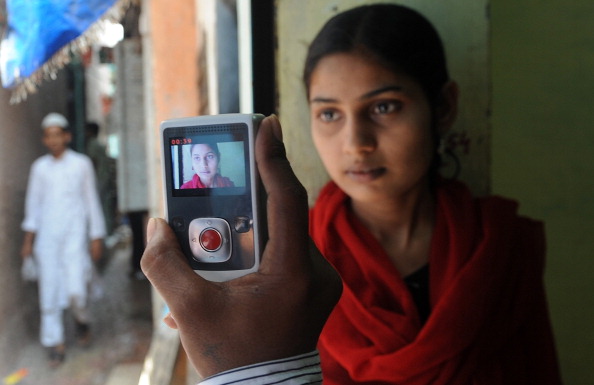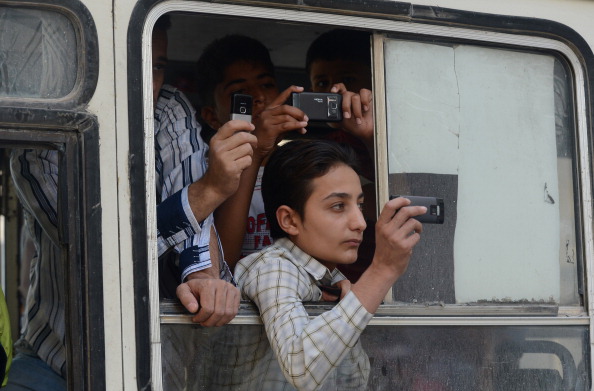
Social media and digital technologies are increasingly changing the way we document and report on human rights abuses (Photo Credit: Indranil Mukherjee/AFP/GettyImages).
I have previously discussed the many opportunities and pitfalls of social media for human rights research and advocacy, or if social media content could potentially document war crimes in Syria. This week I was invited to participate in a fascinating online discussion on how to incorporate social media into human rights campaigning. The conversation is organized by New Tactics for Human Rights and The Engine Room and is still open until the end of the week. We are off to a great start with around 35 comments, and visitors to the website this week came from more than 100 countries! If you are interested in this topic, I encourage you to share your experience and thoughts.
The conversation provides several examples of how social media has been used as a tactic by various human rights organizations and other NGOs. Examples from Amnesty International include our Bahrain Twitter action or Eyes on Syria campaign and use of a YouTube playlist in our campaign to establish a Commission of Inquiry on human rights violations in North Korea. Other case studies come from Greenpeace and El Salvador, among others. A current case study – which is still unfolding – is the #SaveBeatriz campaign.


